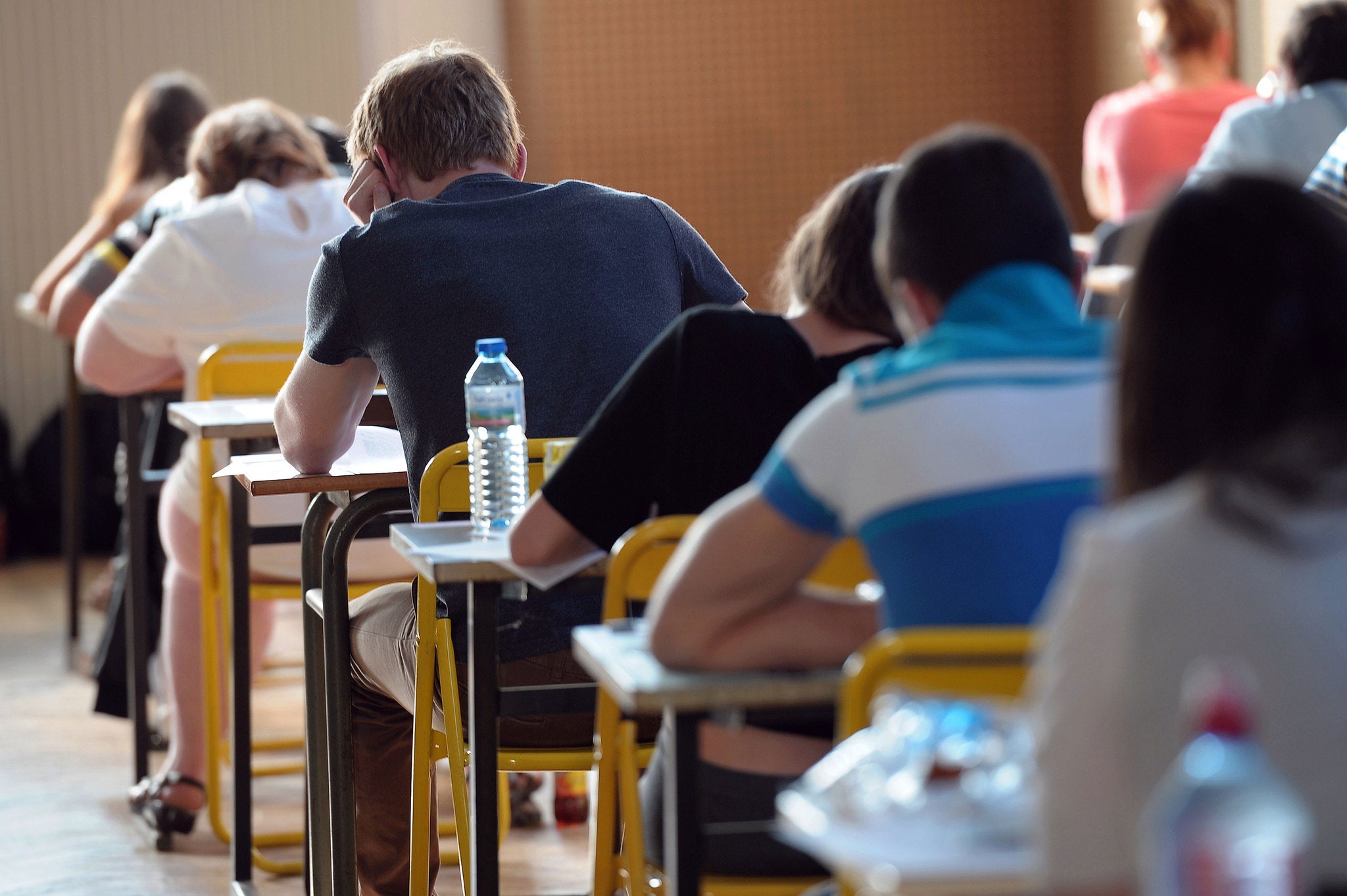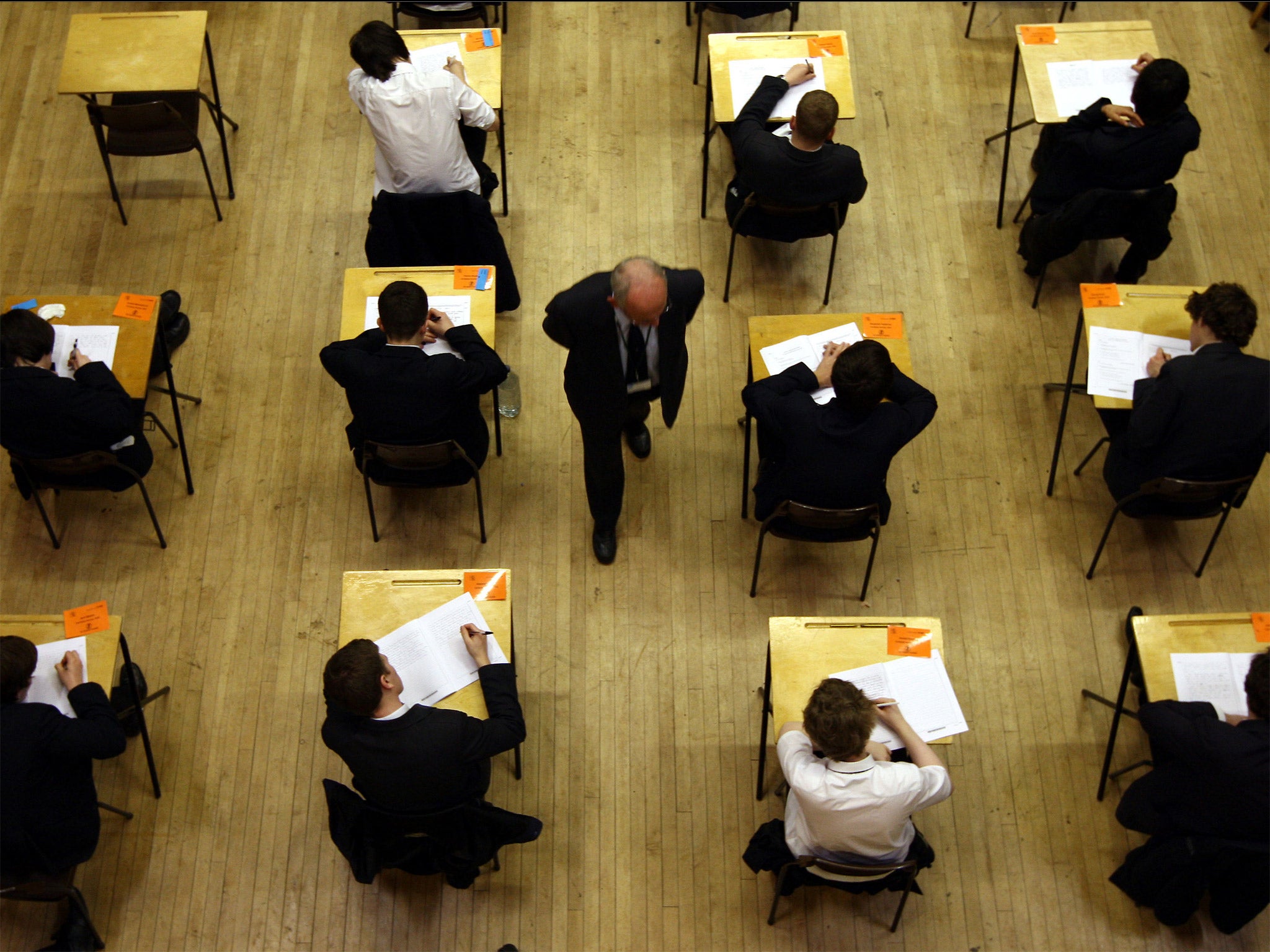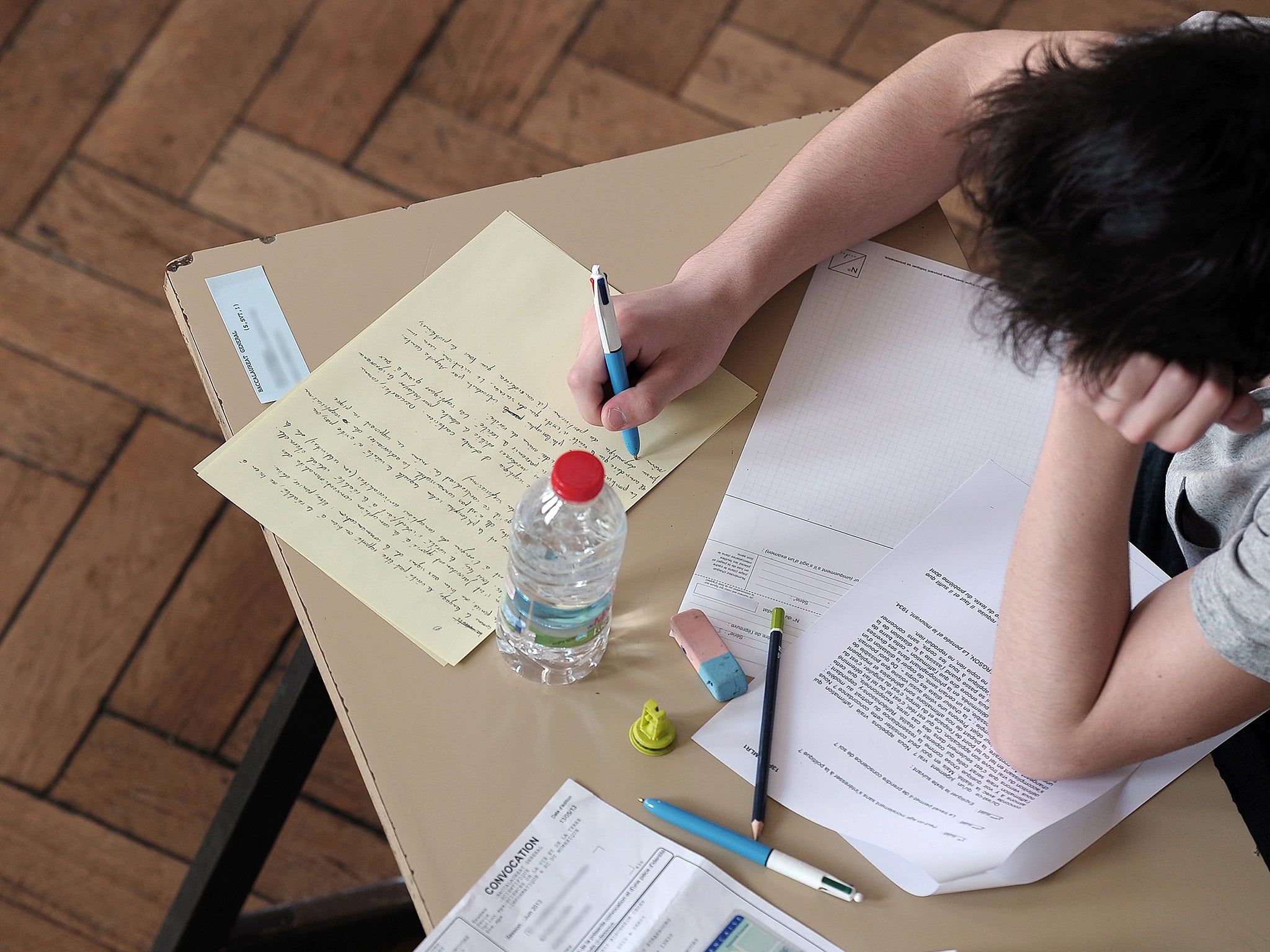Boys catching up with girls in GCSE exam performance, new results show
Headteachers’ leaders claimed the reduction was likely to be down to former Education Secretary Michael Gove’s exam reforms

Boys are closing the gap with girls in GCSE performance, after the Government scrapped coursework.
Girls have dominated results day for most of the past two decades - almost since the GCSE with its reliance on coursework was first introduced.
But this year’s results showed that girls only did 8.4 per cent better than boys - down from 8.8 percentage points last year. In total 64.7 per cent of boys obtained A* to C grade passes compared to just 64.3 per cent in 2014.

Headteachers’ leaders said the narrowing of the gap was likely to be down to former Education Secretary Michael Gove’s exam reforms. He ushered in a switch away from marked coursework, towards a reliance on the end-of-course exam.
Research has shown that boys perform better in a “sudden death” end of term exam while girls prefer the methodological approach of doing coursework that counts towards the final exam grade.
This year’s shrinking of the gender gap has been achieved through boys improving their results whilst the performance of girls remains static.
Brian Lightman, general secretary of the Association of School and College Leaders, said: “Boys’ underachievement has tended to be because they do things at the last minute.”

He added: “We need now to make sure girls don’t under-achieve in the next phase of GCSEs.”
Overall, the results - received by 600,000 teenagers - showed a rise in the number of top grade A* to C grade passes with almost seven out of 10 entries awarded at least a C grade. However, there was a slight drop in the number of A* grades awarded - down 0.1 per cent to 6.6 per cent. the fourth year in a row that they have fallen.
The number of students taking science subjects increased by 3.8 per cent - going some way to reversing a 9.7 per cent drop in 2014.
In English, there was a 0.5 per cent drop in the number of A* grades awarded to 3.1 per cent but the number of A* to C grades rose by 3.7 to 65.4 per cent.

In maths, the number of candidates getting at least a C grade pass rose by 3.7 per cent to 65.4 per cent.
The English and maths results also saw a rise in the number of older teenagers taking the exams - as a result of the Government’s insistence that pupils who failed to obtain at least a C grade in either subject at 16 should be forced to take them again.
Figures showed a 22.9 per cent rise in the number of 17-year-olds and over taking English and a 30.2 per cent increase in taking maths. The percentage gaining a C grade pass was much lower - 37.9 per cent and 38.9 per cent respectively compared with an average of 61.7 per cent and 62.4 per cent.
However, Mark Dawe, chief executive of the OCR [Oxford, Cambridge and Royal Society of Art] exam board, said: “English and maths are really important subjects - 40,000 students have now got A* to C grades in maths and 35,000 in English who didn’t have it – that’s 75,000 students achieving it who weren’t there beforehand.”
Andrew Hall, chief executive of the AQA exam board, added: “I think that’s really encouraging for the nation.” He added that one should expect a lower pass rate from the 17-year-olds because of the calibre of student who was taking the exam.
Mary Bousted, general secretary of the Association of Teachers and Lecturers, said: “We agree all students need to be literate and numerate. However, making them resit their GCSEs until they get a C grade is completely demotivating.”
The biggest rise in take up was in computing, which saw a 111.1 per cent increase in candidates to 16, 773.